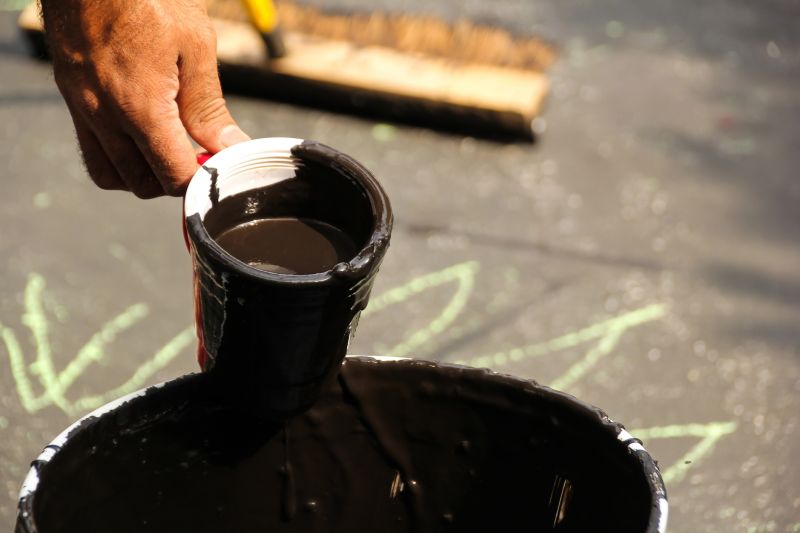Ultimate Sealcoating Supplies for Professional Pavement Protection
Find out which top-rated products are favored by industry experts to ensure long-lasting pavement sealing solutions.
 Sealcoating is an essential process used to protect and extend the lifespan of asphalt surfaces. It involves applying a protective coating that acts as a barrier against elements such as water, oils, UV rays, and other damaging substances. Proper sealcoating can help maintain the integrity of driveways, parking lots, and other paved areas, reducing the need for costly repairs over time. When selecting products for a sealcoating service, it's important to understand the different types available to ensure compatibility with specific project requirements.
Sealcoating is an essential process used to protect and extend the lifespan of asphalt surfaces. It involves applying a protective coating that acts as a barrier against elements such as water, oils, UV rays, and other damaging substances. Proper sealcoating can help maintain the integrity of driveways, parking lots, and other paved areas, reducing the need for costly repairs over time. When selecting products for a sealcoating service, it's important to understand the different types available to ensure compatibility with specific project requirements.
Top Overall Option
Premium Asphalt Sealcoating Compound
This versatile asphalt sealcoating compound offers a balanced formulation suitable for a variety of surfaces. It provides a durable, protective layer that resists water, oils, and UV damage, helping to maintain the integrity of paved areas. Designed for ease of application, it can be used with spray or squeegee methods, making it suitable for both professional and DIY projects.
Types of Products For Sealcoating Service
Coal Tar Sealers
Known for their high durability and chemical resistance, coal tar sealers are a traditional choice for long-lasting protection.
Asphalt Emulsions
These water-based sealers are easy to apply and dry quickly, making them popular for residential and light commercial use.
Acrylic Sealers
Offering fast drying times and good UV resistance, acrylic sealers are often used where quick turnaround is desired.
Polyurethane Sealers
Polyurethane options provide excellent abrasion resistance and flexibility, suitable for high-traffic areas.
Silicone Sealers
Silicone-based products offer water repellency and weather resistance, ideal for challenging climates.
Sand-Added Sealers
These sealers include aggregates for slip resistance and enhanced durability.
Cold Applied Sealers
Designed for quick application without heating, suitable for rapid repairs and touch-ups.
Hot Applied Sealers
Require heating before application, often used for larger commercial projects due to their robust protection.
Rapid Dry Sealers
Formulated to dry quickly, minimizing downtime between application and use.
High-Gloss Sealers
Enhance the appearance of paved surfaces with a shiny, reflective finish.
Penetrating Sealers
Designed to seep into the asphalt, providing internal protection without a surface film.
Crack Filling Sealers
Specialized formulations to fill and seal cracks before applying a top coat.
Popular Choices
Widely used for their ease of application and quick drying times, suitable for various surfaces.
A traditional choice appreciated for its durability and resistance to chemicals.
Popular for their fast curing and UV resistance, often used in residential settings.
Chosen for their high abrasion resistance and flexibility in high-traffic areas.
Favored for their water repellency and weather resistance.
Common for providing slip resistance and additional durability.
Preferred for quick, on-demand repairs and small projects.
Selected for large-scale commercial applications requiring robust protection.
Ideal for projects needing minimal downtime between application and surface use.
Popular for aesthetic enhancement of paved surfaces.
Chosen for internal protection without surface film formation.
Used to fill and seal cracks before applying a protective top coat.
Sealcoating products come in various formulations, including coal tar-based, asphalt-based, and acrylic emulsions. Each type offers unique properties and application considerations. For instance, coal tar sealers are known for their durability and resistance to chemicals, while asphalt-based options provide a more flexible coating that adheres well to asphalt surfaces. Acrylic emulsions are often appreciated for their quick drying times and ease of application. Choosing the right product depends on factors such as surface type, climate conditions, and desired longevity.
In addition to the base coating material, many sealcoating products include additives to improve performance. These can include sand or aggregate for slip resistance, stabilizers for enhanced durability, or pigments for aesthetic purposes. Proper application techniques and product selection are critical to achieving effective and long-lasting results. It's also advisable to consider the environmental conditions during application, such as temperature and humidity, to ensure optimal adhesion and curing.
Investing in high-quality sealcoating products can make a significant difference in the outcome of a sealing project. Whether for residential driveways or commercial parking lots, selecting the appropriate materials and understanding their properties can help ensure a successful application. Consulting product specifications and manufacturer recommendations can provide additional guidance for achieving the best results with your sealcoating service.
Key Buying Considerations
- Type of sealer formulation (coal tar, asphalt, acrylic, etc.) and its suitability for your surface.
- Application method compatibility, whether spray, squeegee, or roller.
- Drying and curing times to fit project schedules.
- Weather conditions during application, including temperature and humidity levels.
- Surface type and condition, ensuring the product adheres properly.
- Desired durability and resistance to chemicals, water, and UV rays.
- Slip resistance features, especially for pedestrian or vehicle traffic areas.
- Environmental and safety considerations, including fumes and VOC content.
- Compatibility with existing sealers or coatings, if any.
- Ease of cleanup and maintenance post-application.
- Cost-effectiveness relative to project scope and longevity expectations.
- Availability of additives like sand or colorants for customization.
- Manufacturer specifications and recommended application techniques.
- Long-term performance expectations and warranty options.
